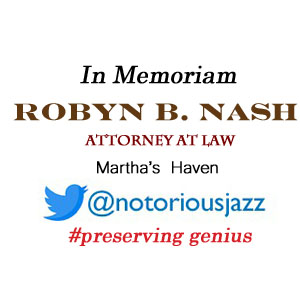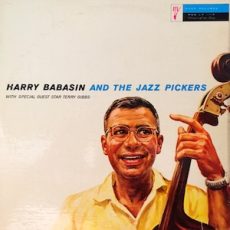
Daily Dose Of Jazz…
Yervant Harry Babasin, Jr. was born on March 19, 1921 in Dallas, Texas to American/Armenian parents. He attended North Texas State University, one of many noted jazz alumni from the school. Among them were Jimmy Giuffre, with whom he played in Bill Ware’s orchestra around 1940, and Herb Ellis, who played with him in the Charlie Fisk Orchestra starting in 1942. Fisk actually fired his rhythm section after hearing Ellis and Babasin play, and after he was admitted, Babasin quit school to go on tour with Fisk.
He toured in the 1940s with Jimmy Joy, Bob Strong, Billie Rogers, Gene Krupa, Charlie Barnet, Boyd Raeburn, Benny Goodman, Woody Herman, Frank DeVol, and Jerry Gray. He also appeared in A Song Is Born, one of many jazz stars to play roles in the film. On the film set he met guitarist Laurindo Almeida, and the two began jamming together. Along with Roy Harte and Bud Shank their quartet was an early experiment blending Brazilian music and jazz. Their 1954 ten inch discs are predecessors to the bossa nova explosion of the late 1950s and early 1960s.
1947 saw him recording the first cello solos known in jazz music, with the Dodo Marmarosa Trio. In order to do so, he tuned his strings in fourths. In later cello ensembles he added a bass player. He and Oscar Pettiford did a session together with two cellos. In the mid-1950s, he put together his own ensemble, Harry Babasin & the Jazzpickers. This ensemble released three albums and played regularly at the Purple Onion in Hollywood, California. One recording of note was made in 1952 at the Tradewinds nightclub in Inglewood. It features Charlie Parker, Chet Baker, Sonny Criss, Al Haig, Larance Marable, and Harry, in one of Bird’s few West Coast appearances.
His career cooled in the 1960s, returning to work with Charlie Barnet and supporting Bob Hope’s USO tours. In the 1970s he and Harte initiated the Los Angeles Theaseum, a jazz archive and preservation society. Harry gave his last tour in 1985 with John Banister on piano. Over the course of his career he was possibly a part of as many as 1,500 recordings.
Bassist Harry Babasin, nicknamed The Bear, died of emphysema in Los Angeles, California on May 21, 1988.
More Posts: bandleader,bass,history,instrumental,jazz,music
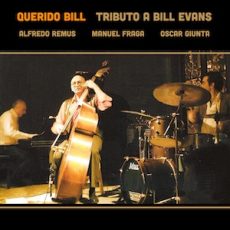
Daily Dose Of Jazz…
Alfredo Remus was born in Buenos Aires, Argentina on November 9, 1938. In 1964 he participated as the double bassist on the historic album La Misa Criolla by Ariel Ramírez.
He has accompanied important musicians and groups such as Paul Gonsalves, Vinícius de Moraes, Maria Bethânia, Enrique “Mono” Villegas, Gato Barbieri, Mercedes Sosa, Tony Bennett, Ariel Ramírez, Víctor Heredia, Alberto Cortez, Trio Los Panchos, Raphael, Zupay Quartet, Dyango, Leonardo Favio, Sandro, Susana Rinaldi, and Antonio Carlos Jobim , among others.
He was a regular participant in a series of informal folklore improvisation and experimentation meetings at Eduardo Lagos’s house, humorously baptized by Hugo Díaz as folkloréishons, which in the style of jazz jam sessions, used to bring together Lagos, Astor Piazzolla and Díaz.
With other musicians, Remus played with Oscar Cardozo Ocampo, Domingo Cura and Oscar López Ruiz among others. He recorded nine albums as a leader with his debut album Trauma released in 1968 and his final recording Tribute To Bill Evans in 2006.
Double bassist Alfredo Remus, who performed various genres of American popular music, that included but not limited to tango, jazz, Argentine folklore, bossa nova and post-bop, died in Buenos Aires on September 28, 2022.
More Posts: bandleader,bass,history,instrumental,jazz,music
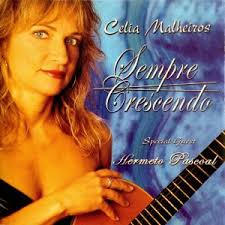
Daily Dose Of Jazz…
Celia Malheiros was born on October 2, 1960 in Rio de Janeiro, Brazil and from early childhood she was immersed inthe world of Candomblé, an Afro-Brazilian religion. She was introduced to the schools of samba, bossa nova, choro, baião, frevo and indigenous music, as well as Tropicália and political revolutionary movements.
By 18 she was completely supporting herself through music she composed, playing at festivals, theatrical productions, nightclubs, radio and TV shows. She scored films, taught music and led bands to perform her music.
Moving to the U.S. she settled in San Francisco, California where she performed and competed in street carnaval, winning numerous awards. Malheiros spent thirteen years as the music director, arranger and performer with the Brazilian All Star Big Band with Elza Soares, Emilinha Borba and Walter Wanderley. She went on to tour the U.S. opening for the likes of Tony Benett, the Modern Jazz Quartet, Santana and Ray Charles.
Touring internationally as a solo artist and leading her band tRIO, she has accepted commissions by the Wheaton College Choir and the Akat Dance Company. Celia lectures, holds clinics and master classes around the world. She has been a composer in residence at the OMI International Music Program in New York City and artist in residence twice at Massachusetts’ Wheaton College.
Ever vigilant about bringing awareness to the plight of the Amazon’s indigenous and forest, her latest album is also a one woman show. She has more than 50 musicians on each of her albums. Vocalist Celia Malheiros is writing her memoirs.
More Posts: bandleader,guitar,history,instrumental,jazz,music,vocal
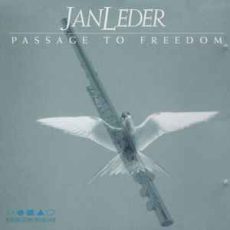
Daily Dose Of Jazz…
Jan Leder was born May 19, 1958 and raised in New York City and pursued her love for improvisation after twelve years of studying classical music. She studied for three years with pianist Lennie Tristano and then continued her jazz studies with pianist Connie Crothers for over ten years. A self-styled course of study in jazz history at SUNY Purchase led to her compilation of the first comprehensive history of women in jazz titled Women in Jazz: A Discography of Instrumentalists 1913-1968.
In February 1997 Monad Records released her first recording, Passage To Freedom, which was recorded live at the Five Spot in New York City. In 1999 Jan recorded Nonchalant, a collection of mostly original melodies.
Ms. Leder leads her own jazz ensembles in the New York City area, appearing at nightclubs, festivals, cultural functions and other public and private engagements. Her repertoire includes standard bebop, swing, blues and bossa novas as well as her own unique jazz compositions and those of her musical colleagues, including drummer/big band leader Art Lillard, with whom Jan collaborated on numerous compositions, mostly writing lyrics to his catchy songs.
From 1987 to 2012 Jan was a member of the flute section in Art Lillard’s Heavenly Band. Jan was also a member of a group of jazz flutists called the NY Jazz Flutet that included Dotti Anita Taylor, Elise Wood, Michele Smith and Chip Shelton along with drummer Art Lillard.
She entertains at healthcare facilities, teaches workshops and seminars, plays at fundraisers and jazz festivals. She has toured around the world, and composed pop, r&b, theater and film music. Leder has worked with the 9th Street Stompers, a popular local jazz band, playing their unique variety of jazz styles in parades, street fairs and other venues.
Flutist Jan Leder, who is a writer and publisher member of the American Society of Composers, Authors and Publishers and a member of the National Association of Music Publishers, continues to perform, compose and teach jazz improvisation.
More Posts: bandleader,flute,history,instrumental,jazz,music
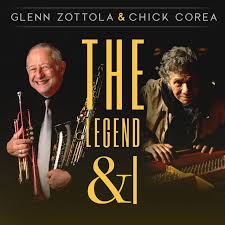
Daily Dose Of Jazz…
Glenn Paul Zottola was born in Port Chester, New York on April 28, 1947. He started playing jazz professionally in 1960.
Glenn is known for his work with Lionel Hampton, Benny Goodman, and Bob Wilber, and has accompanied a broad range of vocalists, including Mel Tormé, Frank Sinatra, Peggy Lee, Ella Fitzgerald, and Joe Williams.
He has recorded over 50 albums with Butch Miles, Bob Wilber, Mousey Alexander, Steve Allen, Phil Bodner, George Kelly, Peggy Lee, George Masso, George Masso, and Maxine Sullivan, among numerous others.
In 1988, was a featured soloist at the 50th anniversary of Benny Goodman’s Carnegie Hall Concert. In 1995, Zottola was bandleader on the Suzanne Somers daytime TV talk show at Universal Studios.
Trumpeter and saxophonist Glenn Zottola, who has recorded twenty-two albums as a leader, continues to perform and record.
More Posts: bandleader,history,instrumental,jazz,music,saxophone,trumpet





